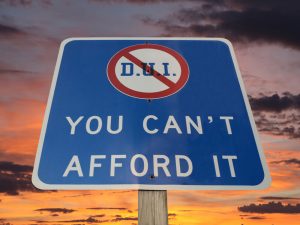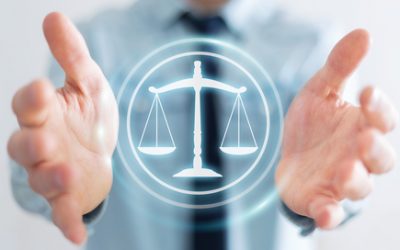
- Plea Bargains – An agreement made with the prosecution to plead guilty to receive a certain outcome.
- Felony DUI – Extreme circumstances, like when an injury is involved, may warrant that a DUI is classified as a felony.
- DUI Penalties – Legal consequences of driving while under the influence of alcohol, drugs, or another substance like a prescription medication that causes impairment.
- DUI Pre-Trial Motions – A meeting among the attorneys, prosecutor, and judge to begin arguments that specific evidence, testimonies, or witnesses should be disallowed in the trial.
- Marijuana DUI – A charge for driving while under the influence of marijuana can still be given for those who are legally allowed to have marijuana in their possession.
- DUI Laws – The legal limit for driving under the influence in California is .08% blood alcohol concentration.
- Investigation – A preliminary alcohol screening test is the most commonly used test that a police officer will use in a DUI Investigation.
- Drivers License – A document that permits an individual to operate a motor vehicle, and it can be revoked after a DUI arrest.
- Prescription Medication DUI – If impairment while driving is proven, a medication can be the culprit.
- Under 21 DUI – An charge for a minor who operates a vehicle after illegally drinking alcohol.
- Enhancements – The potential for greater punishment in an extreme DUI charge.
DUI Frequently Asked Questions
Is it a criminal charge in Los Angeles to drive while intoxicated?
DUI is more than a traffic violation in California – it can either be a criminal misdemeanor charge or a criminal felony charge, depending on the case (even for first offenses). The state has gotten increasingly strict on driving under any influence of alcohol.
Which substances or drugs can cause a DUI?
In California, many substances can cause impairment and a DUI. Illegal or legal drugs, controlled substances, and alcohol can all cause a driver to be too impaired to safely maneuver on the road.
Dealing with Law Enforcement
However, if the driver refuses to take a Breathalyzer they may be faced with a new and separate charge than the DUI. Refusing the test also does not guarantee that a DUI conviction will eventually still be made. The officer only needs to have a probable cause to make an arrest.
Driver’s License and Insurance
Higher rates for car insurance will also occur for a period of several years after a DUI arrest because the conviction suggests that the driver could have unsafe driving habits. The state could also request that when you do obtain car insurance, you need file an SR-22, an FR-19, or an FR-44. These forms demonstrate financial responsibility after the conviction.
DUI Penalties in California
Penalties become more severe after the first DUI, but for a first conviction the minimum penalties are:
Getting a Lawyer
Hiring a DUI lawyer can be beneficial because it’s not usually a simple task to represent yourself in criminal court or in the DMV proceedings. Improved outcomes can be achieved by hiring an attorney because many factors may be in question like license suspension, fines, community service, and alcohol education classes.
Sometimes, an attorney can help to reduce charges, including the period of time for license suspension. If an injury occurred as a result of the DUI, it’s imperative to hire a DUI lawyer or you will likely face more jail time than if you had skilled representation.
How to Fight a DUI
It becomes much more difficult to win in court if the DMV “per se” charge is given because of a higher BAC. Even if you’ve hired an attorney who can argue the accuracy of the BAC in court, it still could not be a sufficient argument to demonstrate that you were actually under the .08% BAC.
For this reason, fighting a DUI is contingent on how strong the evidence is that the prosecution has. If the evidence reveals a high BAC, the best way to fight a DUI could be to negotiate a plea bargain.
Living with a DUI
Fortunately, in some cases, successful completion of required steps can reinstate your driver’s license. You’ll need to finish the entire period of assigned license suspension, serve the whole jail or prison sentence, and complete alcohol education classes. Other sentencing conditions may be required including rehabilitation or installation of an ignition interlock device on your vehicle. Finally, you’ll be able to get the right kind of car insurance and apply for reinstatement of your license.
DUI Legal Glossary Definitions
Legislators, police officers, and DUI lawyers use unique terminology and shorthand to discuss factors and cases that involve driving under the influence. These DUI law definitions can be extremely helpful for those who have gotten a DUI charge. Some terms in our legal glossary describe the arrest and others explain the legal practices that are involved.
DUI News
- Rolling Police Car Alerted Chief to Arrest Police Officer for DUI
- DUI Simulators at High School Teach Students the Dangers of Driving While Intoxicated
- Plea Bargain Helped Tiger Woods End DUI Probation Early
- DUI on a Scooter – Police Could Tell from His Breath That Alcohol Was Involved
- Man Faces Eighth Arrest for DUI and a Bleak Future
Penalties and Codes
In California, the consequences for a DUI differ according to the situation and case. The law specifies ranges of penalties that are contingent on the number of previous convictions and the number of years that have passed between the offenses. A DUI arrest will be visible on a criminal record and will be considered a prior offense.
California DUI Penalties
When considering a suitable penalty, a prosecutor or judge will carefully consider the unique circumstances of the situation.
For a first DUI offense, a maximum of 6 months of jail, a maximum of $3,600 in fines, and 3 months of alcohol education classes could be ordered.
A second DUI offense can face a maximum 1-year of jail time, $4,000 in fines, 2 years of license suspension, and 18-30 months of alcohol education classes.
For a third offense DUI, a maximum 1-year of jail-time or 16 months of state prison could be ordered plus fines totaling a maximum of $18,000.
California Vehicle Codes
It includes almost every single one of California’s legal statutes that apply to the ownership, registration, and operation of motor vehicles (even for street bicycles and animals when they are ridden on a road). The statutes that apply to the California Highway Patrol and the California Department of Motor Vehicles are included in The Vehicle Code.
California Penal Codes
California’s Penal Codes are the foundation for utilizing criminal law in California. The codes were established in 1872 originally and have been revised as necessary. For numerous citizens, the code is written in a manner that sometimes only people who have law degrees can comprehend. Working with an attorney is important for those who have been arrested so that they can learn what needs to be done to rectify the situation.






